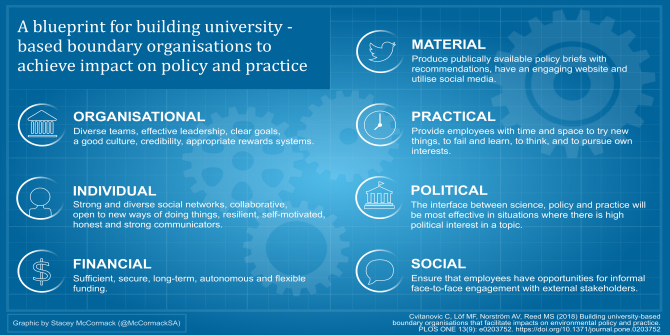 Researchers everywhere are being pushed to collaborate. Individual academics are being urged to join teams, small teams are encouraged to merge with others to become bigger teams, and institution-wide and inter-institutional collaborations are spreading. With potential benefits including increased chances of funding, visibility, and impact, why, asks Jenny M. Lewis, are social scientists not embracing collaboration more? Might it be the value they place on their autonomy, the freedom to pursue their own ideas and choose which topics to work on, that is constraining them? Researcher interviews suggest it may actually be time pressures and managerial constraints that are bounding autonomy, crowding out space to develop collaborations.
Researchers everywhere are being pushed to collaborate. Individual academics are being urged to join teams, small teams are encouraged to merge with others to become bigger teams, and institution-wide and inter-institutional collaborations are spreading. With potential benefits including increased chances of funding, visibility, and impact, why, asks Jenny M. Lewis, are social scientists not embracing collaboration more? Might it be the value they place on their autonomy, the freedom to pursue their own ideas and choose which topics to work on, that is constraining them? Researcher interviews suggest it may actually be time pressures and managerial constraints that are bounding autonomy, crowding out space to develop collaborations.
Research collaboration, broadly meaning teams of researchers working together on a common topic, is being encouraged within countries, between countries, within regions, and globally. It features in national research policy in the form of grants that encourage it, and this is mirrored in the strategies of individual universities. This trend has escalated. Individual academics are being urged to join teams, small teams are encouraged to merge with others to become bigger teams, and institution-wide and inter-institutional collaborations are spreading. Many of these are deliberately tilted towards interdisciplinary, multinational teams and partnerships between academic and non-academic institutions. This push is backed by a belief that better research results from “many different brains working on the same question”. Collaboration is also seen as important for addressing grand societal challenges, increasing research productivity, and increasing research impact.
Compared to the biological and physical sciences or the science, technology, engineering and mathematics disciplines, the humanities, arts and social sciences lag behind on collaboration, at least as measured by concrete, visible markers such as co-authorship practices or jointly held grants. While co-authorship is an imperfect measure for all that research collaboration entails, it does signal something about disciplinary practices.
 Image credit: alone in a crowd by Shinichi Sugiyama. This work is licensed under a CC BY-SA 2.0 license.
Image credit: alone in a crowd by Shinichi Sugiyama. This work is licensed under a CC BY-SA 2.0 license.
Collaboration (whether intra or interdisciplinary, confined to academia or in partnership with non-academics) is not the answer to addressing every kind of research question, but it does have potential benefits, such as: access to others’ expertise; insights from other disciplines (in the case of interdisciplinary collaboration); increased chances of getting funding; gaining tacit knowledge; education, training, and mentoring benefits; increased visibility and impact; as well as the pleasure and intellectual stimulation of working with others. It is also a direction that research policy around the globe supports. So why are social scientists not embracing collaboration more, given the potential benefits on offer?
Why not collaborate?
First, a disciplinary explanation suggests that social science does not engage more in collaboration because it doesn’t fit well with its ontology, epistemology, approaches, and methods. Social science knowledge is generally not paradigmatic, continually building on things that have been proven and agreed upon. The epistemic foundations of collaboration can be shaky, even within a specific social science discipline, and substantial time must be spent defining terms and establishing what the group agrees upon before any new work can begin. This last point becomes a major disincentive to collaboration, particularly interdisciplinary collaboration.
A structural explanation would posit that the kind of institutional environments we sit within, and the professional associations we belong to, somehow discourage collaboration. This explanation encompasses the enduring structures in universities, as well as how we are trained as undergraduates, postgraduates, and early-career academics, and how we teach. Universities still use disciplines as an organising principle in constructing departments and schools, and many associations are discipline-based. These structures encourage distinction and separation. Social science disciplines also emphasise individual research practices. For undergraduates, individual essays and exams are the major assessment tasks. PhD students write lengthy dissertations alone. There is not much about this training that encourages collaboration.
The third explanation is one of dissonance. That is, social scientists don’t collaborate because it is seen as a threat arising from the imposition of a managerial agenda on academics and their work. Related to this is a belief that collaboration is being used to force social scientists into team structures, in line with STEM approaches to research. And dissonance arises where collaboration is seen as something that will result in more work rather than less, impeding academic scholarship rather than improving it.
A final potential explanation for resisting collaboration is that social science disciplines attract individuals who value their autonomy above all else and loathe the idea of someone directing their research interests. This is backed by national systems and institutional practices that sometimes reward individual scholarship above collaboration. Some institutions fractionate co-authored publications, directly diminishing their value. Intrinsic motivation sits alongside academics’ desire for recognition and reputation; having to share the glory might be a disincentive to collaboration. Autonomy deserves further scrutiny.
A dictionary definition of autonomy is: the capacity of a rational individual to make an informed, uncoerced decision. For an individual, autonomy is generally associated with independence or freedom, and the ability to direct one’s own actions. It is regarded as necessary for the unhindered pursuit of curiosity, and remains a powerful idea in contemporary universities. Academics themselves define it in different ways, but freedom from interference is widely held to be important. Given autonomy’s importance, it seems that understanding how it fits with collaboration might be illuminating. Is collaboration regarded by academics as something that leads to a reduction in autonomy?
To discover more about this, a small number of interviews (18) were conducted at the University of Melbourne (Lewis, Letina and Woelert, 2016) in 2014-15. Interviewees were evenly split across the humanities (5), sciences (6) and social sciences (7). They were asked questions about the meaning of autonomy, what impacts on it and the relationship between autonomy and collaboration.
Autonomy was described across all three groups as being related to the freedom to pursue one’s own ideas and interests, to choose the topics to work on, to decide which people to work with and how much, the freedom to think, to express opinions in public, and to engage outside the academy. For the humanities it was common to mention that autonomy was about not being managed, or forced into particular topics, or being told what kind of research to do.
Those in the sciences linked autonomy to funding in a number of ways. One was having your own funding to be the person leading the research team. Another was having the autonomy to take on contract work in order to secure funds to do more intellectually exciting work. The social scientists interviewed tended to respond with statements about the boundedness of their autonomy, such as: “well, you do not have autonomy in that sort of absolute sense”.
Across the discipline areas, time constraints were seen to impact on autonomy. The pressure to publish, the need to apply for grants, and performance measurement were all mentioned by humanities scholars: “the sensed pressure to publish a lot, that really impacts; to get large competitive grants which is very, very serious pressure; and, just the bureaucratic micromanagement”.
 Image credit: Stop, Collaborate and Listen by wonderferret. This work is licensed under a CC BY 2.0 license.
Image credit: Stop, Collaborate and Listen by wonderferret. This work is licensed under a CC BY 2.0 license.
Strategic research priorities set by funders or the university were mentioned by scientists, but two of this group indicated that they don’t see many impacts. Social scientists mentioned various administration, teaching and engagement tasks, and applying for research funding on particular (likely to be funded) topics as impacting on autonomy.
Autonomy and collaboration were not seen to be in opposition and in most cases they were regarded as mutually supportive. Amongst the humanities scholars, collaboration was seen as increasing autonomy (because new things were learnt and one’s own thinking might be clarified) and as complementing it. The science scholars discussed the relationship as helpful (collaboration makes you a better autonomous researcher) or as coexisting (you need collaboration to get research done). Two of the science interviewees described autonomy as being related to having grants which means you are the leader of the collaboration.
Some social scientists had a pessimistic view of the relationship, making statements such as: “you have to stop and adjust your direction for others. [T]he notion of discovery is lost in collaboration”. But others saw autonomy and collaboration as improving research: “a good collaboration is when you bring what you’re interested in and your skills into a project and you have your ideas challenged and refined and they grow through that process”.
Perhaps autonomy is not the problem?
This single-university study raises some interesting points. First, there are commonalities across the discipline groups in their views of autonomy but the scientists tended to link it to funding in a positive sense (funding allows them to have autonomy). Second, time constraints were seen as the major factor impacting on autonomy. For humanities and social science scholars, the pressure to meet certain performance standards were crucial here. Third, autonomy and collaboration were generally regarded as mutually beneficial as long as autonomy was truly maintained.
This suggests that potential impacts on autonomy are not necessarily the reason that social scientists forego collaboration. Perhaps time pressures and managerial constraints are bounding autonomy and crowding out space to develop collaboration? Collaboration takes longer to develop in the social sciences and often appears in less visible forms (Lewis, Ross and Holden, 2012; and Lewis, 2013). A better understanding of the reasons why many social scientists are reluctant to collaborate is required. More appropriate models of collaboration also need to be developed and used to inform research policy. Only then will the benefits of collaboration be realised for social science.
Note: This article gives the views of the author, and not the position of the LSE Impact Blog, nor of the London School of Economics. Please review our comments policy if you have any concerns on posting a comment below.
About the author
Jenny M Lewis is Professor of Public Policy and the Director of The Policy Lab at the University of Melbourne. She is an expert on public policy and governance, the author of six books and more than 70 journal articles and book chapters, and has received several prizes for her research. This blog draws on her outgoing presidential address to the Australian Political Studies Association in September 2017. Her ORCID iD is: 0000-0001-5858-8634.








When you say ” Social science knowledge is generally not paradigmatic” you seem to be getting close to Thomas Kuhn’s insight, but in one of his lesser known essays, “the Function of Dogma in Scientific Research” (1963) Kuhn had this comment about the power of paradigms to guide teaching and research: He noted that ” One can scarcely imagine a physicist’s or chemist’s saying that he had been forced to begin the education of his third-year class almost from first principles because its previous exposure to the field had been through books that consistently violated his conception of the discipline. Remarks of that sort are not by any means unprecedented in several of the social sciences.”
Researchers in the social sciences (and the humanities) will be limited in their ability to do collaborative research to the extent that they lack a shared paradigm to guide that research.